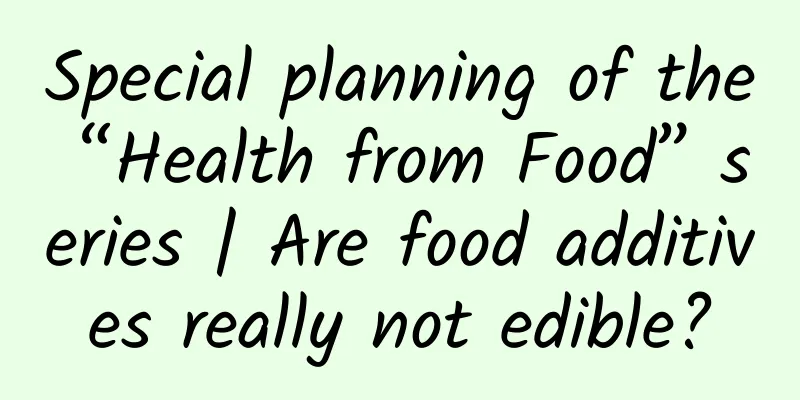Special planning of the “Health from Food” series | Are food additives really not edible?

|
Some time ago, Internet buzzwords such as "technology and hard work" and "Hextech" caused many people to have food anxiety. Are food additives safe? Even now, many people still think that food is unhealthy and unsafe when they see something other than raw materials on the food ingredient list. In the Food Safety Law of the People's Republic of China, the concept of food additives is described as artificial or natural substances added to food to improve food quality and color, aroma and taste, as well as for the needs of preservation, freshness and processing technology, including nutritional enhancers. Can we eat food additives? Food additives are not a scourge, and whether they are healthy and safe depends on scientific judgment. Whether the label says "zero additives" or "pure natural" or whether food additives are used in the food production process, as long as it complies with relevant laws and regulations and food safety standards in my country, it is safe and can be eaten with confidence. At the same time, food additives are indispensable for the food processing industry. They can extend the shelf life, improve food flavor, increase nutritional value, and facilitate food processing, storage and transportation. For example, they are preservatives in low-salt pickles and soy sauces, antioxidants in instant noodles and various cookies and snacks, etc. Without these food additives, the transportation and sales time of food will be limited, and we may hardly see a wide variety of food on the shelves of supermarkets. Principles for the use of food additives The current "National Food Safety Standard for the Use of Food Additives" clearly stipulates the principles for the use of food additives, the types of food additives allowed, the scope of use, and the maximum amount or residue of food additives. The basic requirements that food additives should meet when using mainly include: 1. It should not cause any health hazards to the human body; 2. Food spoilage should not be concealed; 3. Food additives should not be used to cover up quality defects in food itself or in the processing process, or for the purpose of adulteration, falsification or counterfeiting; 4. The nutritional value of the food itself should not be reduced; 5. Reduce the amount used in food as much as possible while achieving the expected effect. In general, we must correctly understand food additives, objectively view and analyze the pros and cons of food additives, and purchase food that meets national standards through formal channels. Author: Li Sijia, Henan University of Science and Technology Review expert: Wang Yao, associate professor of the School of Food and Bioengineering, Henan University of Science and Technology |
<<: Popularization of knowledge about human assisted reproductive technology
>>: How to prevent thrombosis in patients with PICC catheterization
Recommend
Pregnancy abdominal cramps
The pregnant mother's belly needs to be caref...
How can I get rid of these mysterious lines that appear when I gain weight?
If you have been fat, or are still fat, then you ...
What should I do if I have vaginal discharge caused by vaginitis?
Many women have recently developed vaginitis, wit...
What foods are taboo during menstruation?
Generally, normal women will feel uncomfortable f...
What causes menstrual bleeding during ovulation?
The ovulation period of menstruation refers to th...
What is the reason for less menstrual flow, dark blood clots?
Some female friends find that their menstrual flo...
3D anatomy of the uterine ligament
Uterine prolapse, also known as uterine prolapse,...
Why can doctors diagnose health problems just by looking at the person’s walking?
A friend told Huazi a "miraculous thing"...
Caesarean section to relieve gas
When women give birth, there are usually two ways...
Why do I have a headache before my period?
Cancer is something that everyone is very worried...
Vaginal hysterectomy steps
The uterus is a very important reproductive organ...
Can glycerin remove stretch marks?
Many people have often heard of glycerin in life,...
Traditional Chinese medicine diet can keep you away from menstrual abnormalities
Women have such a few days every month. If these ...
Can I use moxa leaves to soak my feet during my period?
Mugwort leaves are women's favorite herb, and...
How long after using Daconil suppository can I have sex?
Regarding Daknin suppositories, I believe everyon...









